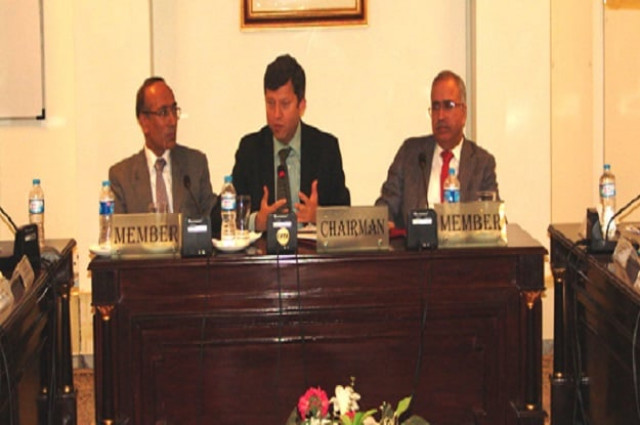PTA chief suggests infrastructure sharing for cost efficiency
Says mobile towers should be outsourced to third parties

PHOTO: PTA.GOV.PK
Speaking at an interactive session jointly organised by the telecom regulatory body and an Islamabad-based think tank, the Information Communication Technology (ICT) Forum Pakistan, at the former’s headquarters, the PTA chief urged the stakeholders to make all-out efforts to overcome the challenges that remain the cause of insufficient infrastructure sharing by the telecom operators.
As opposed to installing company-owned mobile towers, infrastructure sharing with other operator or outsourcing it to a third party has become one of the most efficient methods for expanding the telecom infrastructure while cutting operational costs. Though the concept is picking up in Pakistan, it has yet to come on a par with the global trend.
Tenancy ratio
In order for a tower company to succeed, it should have a tenancy ratio higher than 2.5, but the present tenancy ratio in Pakistan is only 1.3, the PTA said in a press release.
This is despite the fact that the telecom regulator has so far issued nine ‘tower-provider’ licences, including two in the last nine months.
Tenancy ratio refers to the number of tenants - cellular service providers in this case - who put up their telecom infrastructure, such as antenna on a single mobile tower or cell site. In other words, a tenancy ratio of two means there are on average two operators per cell site on the portfolio of a tower company.
“The pioneers of mobile telephony jealously guarded their towers to gain competitive advantage, but now telecom operators are facing stiff competition while investments in mobile broadband (3G and 4G) have increased pressure on their profits manifold,” ICT Forum Pakistan CEO Parvez Iftikhar said during the discussion, which was also attended by industry representatives. “That is how telecom tower sharing and outsourcing has become a global trend.”
The participants were unanimous in stressing that company-owned towers escalate the cost of doing business. Tower infrastructure sharing, or outsourcing, provides a quick mechanism to address this issue, the press release said.
Challenges
The experts shared their experiences about the challenges faced by them. Some of these include anomalies in federal and provincial taxes, fee charged by local authorities for a no-objection certificate and laws about leasing or selling telecom infrastructure.
While infrastructure sharing is the need of the hour for the country, which is still in the early phase of 3G and 4G rollout, it will be a humongous task for independent tower companies to acquire existing towers from the mobile operators.
There are about 40,000 cell sites in the country and it will require a massive capital investment by tower companies to buy out all, or most, of these towers.
This investment could only come as foreign direct investment, once the challenges are addressed, the experts concluded.
Published in The Express Tribune, September 5th, 2015.
Like Business on Facebook, follow @TribuneBiz on Twitter to stay informed and join in the conversation.



















COMMENTS
Comments are moderated and generally will be posted if they are on-topic and not abusive.
For more information, please see our Comments FAQ